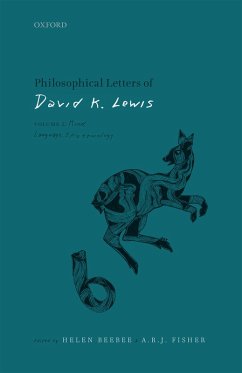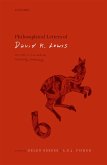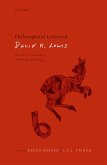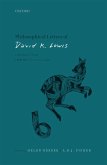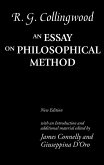David Kellogg Lewis (1941-2001) was one of the most influential philosophers of the twentieth century. He made significant contributions to almost every area of analytic philosophy including metaphysics, philosophy of language, philosophy of mind, and philosophy of science, and set the agenda for various debates in these areas which carry on to this day. In several respects he remains a contemporary figure, yet enough time has now passed for historians of philosophy to begin to study his place in twentieth century thought. His philosophy was constructed and refined not just through his published writing, but also crucially through his life-long correspondence with fellow philosophers, including leading figures such as D.M. Armstrong, Saul Kripke, W.V. Quine, J.J.C. Smart, and Peter van Inwagen. His letters formed the undercurrent of his published work and became the medium through which he proposed many of his well-known theories and discussed a range of philosophical topics in depth. A selection of his vast correspondence over a 40-year period is presented here across two volumes. Structured in three parts, Volume 2 explores Lewis' contributions to philosophical questions of mind, language, and epistemology respectively. The letters address Lewis's answer to the mind-body problem, propositional attitudes and the purely subjective character of conscious experience, meaning and reference as well as grammar in language, vagueness, truth in fiction, the problem of scepticism, and Lewis's work on decision theory and rationality, among many other topics. This volume is a testament to Lewis' achievement in these areas and will be an invaluable resource for those exploring contemporary debates concerning mind, language, and epistemology.
Dieser Download kann aus rechtlichen Gründen nur mit Rechnungsadresse in A, B, BG, CY, CZ, D, DK, EW, E, FIN, F, GR, HR, H, IRL, I, LT, L, LR, M, NL, PL, P, R, S, SLO, SK ausgeliefert werden.

